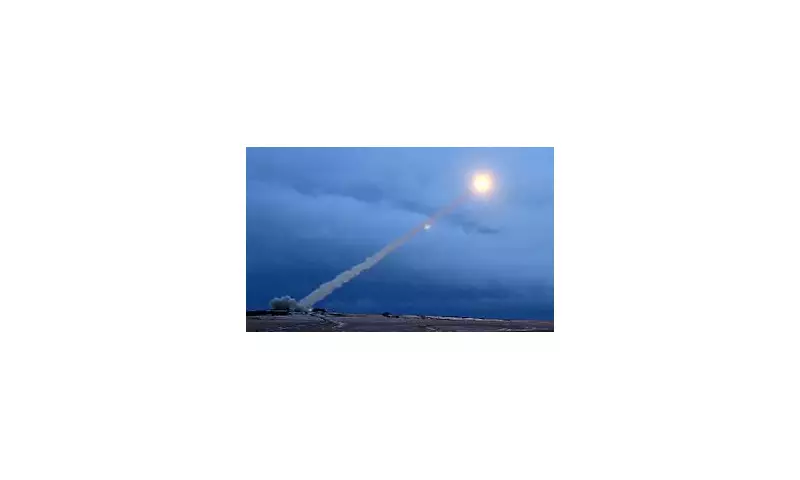
Vladimir Putin has sent shockwaves through the international community with his announcement of Russia's development of a revolutionary nuclear-powered cruise missile, a weapon Western defence experts have grimly nicknamed the 'Flying Chernobyl'.
The Weapon That Knows No Boundaries
During a high-profile address, the Russian president boasted that the new Burevestnik missile system possesses virtually unlimited operational range, claiming it can evade all existing air defence networks. This declaration has reignited global anxieties about a new arms race and potential conflict escalation.
'This is a weapon system with a practically unlimited range, unpredictable trajectory and the ability to bypass interception boundaries,' Putin stated, delivering his message with an air of strategic confidence that has alarmed Western capitals.
Why 'Flying Chernobyl'?
The ominous nickname stems from the missile's controversial nuclear propulsion system. Unlike conventional rockets that burn fuel quickly, this system uses a nuclear reactor to stay aloft for extended periods, potentially enabling it to circle the globe multiple times before selecting its target.
Military analysts have expressed serious concerns about the environmental risks posed by such technology, particularly if such a missile were to crash or be shot down over friendly or neutral territory, potentially scattering radioactive material across vast areas.
International Response and Escalating Tensions
The timing of Putin's announcement is particularly significant, coming during a period of already strained relations between Russia and NATO countries. Defence officials worldwide are now scrambling to assess the actual capabilities of this new weapons system and its potential impact on global security dynamics.
Western leaders have yet to issue formal statements, but diplomatic sources indicate emergency consultations are underway to develop a coordinated response to what many are calling a provocative escalation in nuclear rhetoric.
Historical Context and Future Implications
This isn't the first time Russia has revealed advanced weaponry. In recent years, Putin has unveiled an array of new systems including hypersonic missiles and nuclear-powered underwater drones, positioning Russia as a military innovator while challenging Western technological superiority.
The development raises critical questions about the future of arms control agreements and whether existing treaties can adequately address this new generation of strategic weapons that blur traditional boundaries between conventional and nuclear warfare.





